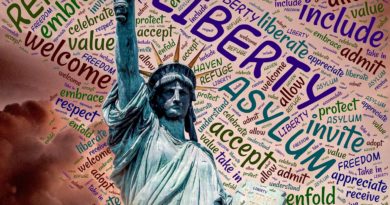Is Ignorance Truly Bliss
Originally submitted for Phil 103W at Penn State University. Grade was 88/100. One of my lower scoring papers.
Ron Hall
2/3/2017
PHIL 103W
Short Paper 1
Is Ignorance Truly Bliss?
Do the ends justify the means of disrupting reality for a people group? We as a society have a saying, “ignorance is bliss”. It came from a poem by Thomas Gray, “Ode on a Distant Prospect of Eton College” and can be interpreted to consider that it may be comfortable to live without certain knowledge. In Plato’s “Allegory of the Cave” in Book 7 of “The Republic”, Plato tells the story of prisoners in a cave where what they experience is their reality. One finds himself freed and through a serious of events, enlightened, however upon return not only is unable to cope but is seen as a sign of fear and rejected by the remaining cave dwellers. Do we have the right or responsibility to reveal truth and shatter illusions when it may disrupt a people group’s happiness?
Many young people today life in a different reality. Between social media, online video games, and smart phones, many have lost the ability to connect with the real world. When asked, many say that their social media is their real world. But there are those of us who have been alive prior to this current age of technology who see this as an illusion and a hindrance to walking, interacting, and living in the real world. My daughter is one such individual. I was another such individual when the internet first became mainstream. But someone showed me the darkness I was living in and the illusion of reality I was perceiving. But in the process, I lost some happiness that the internet reality gave me. Do I have a responsibility now to go and tell my daughter of the actual reality that is, even though it will shatter her happiness?
In the allegory of the cave, the prisoners have a different reality. Their reality is the shadows they see on the cave wall. They believe the shadows are the exact being or object they are seeing. Plato wrote, “To them, I said, the truth would be literally nothing but the shadows of the images”. As a prisoner goes free and goes through a painful enlightenment, the prisoner feels a responsibility to enlighten the others, however Plato goes on to write “Men would say of him that up he went and down he came without his eyes; and that it was better not even to think of ascending; and if any one tried to loose another and lead him up to the light, let them only catch the offender, and they would put him to death,”.
The prisoners viewed the shadows on the cave walls as reality without knowledge that reality could be anything else in the allegory. It would not be responsible to say they were happy but they could not move their heads, so they could not know they were missing anything else. They were ignorant to any other reality and while the writer makes no reference to their emotional state, it was not stated that they were suffering or unhappy. The shadows however were produced by true reality, by fire shining light on puppets in the form of real things outside the cave, real things in the outside world that the freed cave dweller actually eventually saw. Is this new social media casting shadows of real people, real experiences, and real life that younger people such as my daughter now see as real people, real experiences, and real life? What responsibility comes with that knowledge?
Do I have a responsibility, having gone through an earlier experience, to come back and enlighten her and her generation, at the risk of her happiness being shattered in the process? I believe she is a prisoner of the shadows the social media reality casts but I also believe she is happy living in that reality. I believe bringing her into the real world will cause her great unhappiness in the process of disconnecting. Plato worded it this way in the allegory, “And if he is compelled to look straight at the light, will he not have a pain in his eyes which will make him turn away…?” Do I have the right to shatter her reality?
I believe through this ethical issue that I have a single responsibility as a parent. I have a responsibility to share what I know and what I experienced transitioning from the virtual world to the real world. She may not be ready to emerge from the social media reality, and prematurely pulling her out could have great consequences to her happiness. But I do have a single responsibility to show her the truth, and let her decide when the time is right.
Works Cited
“Ignorance is bliss.” Ignorance is bliss – Wiktionary. N.p., n.d. Web. 03 Feb. 2017.
Plato. Republic of Plato (selections). Jowett, Benjamin, trans. London. The Clarendon Press. 1908.




